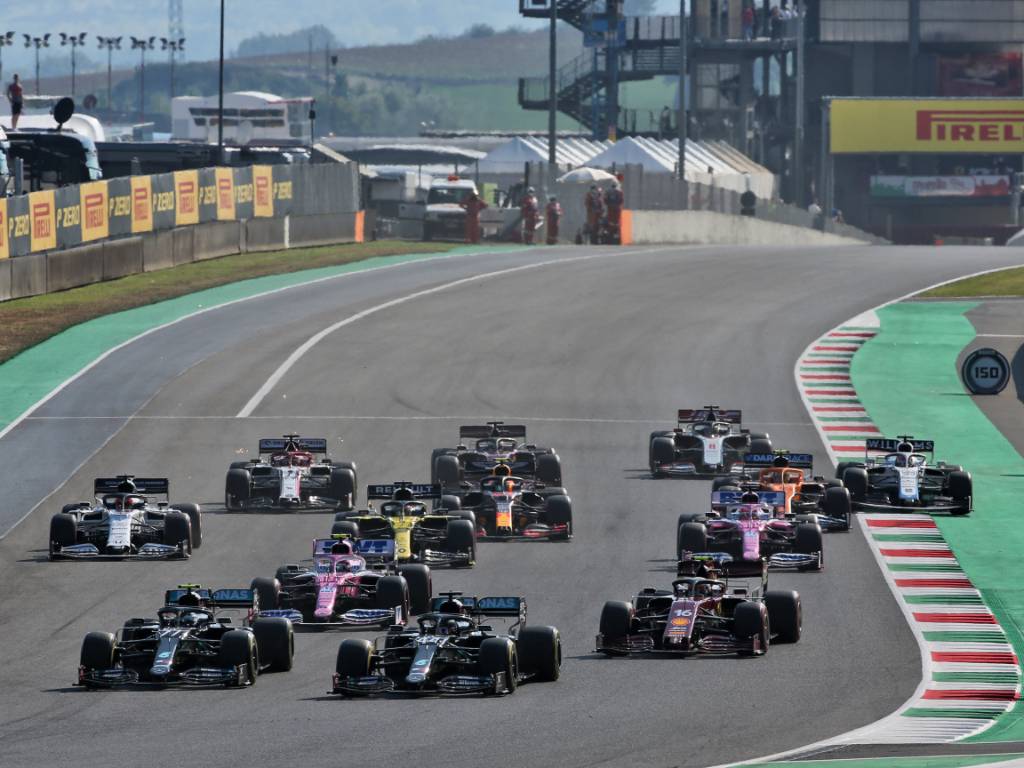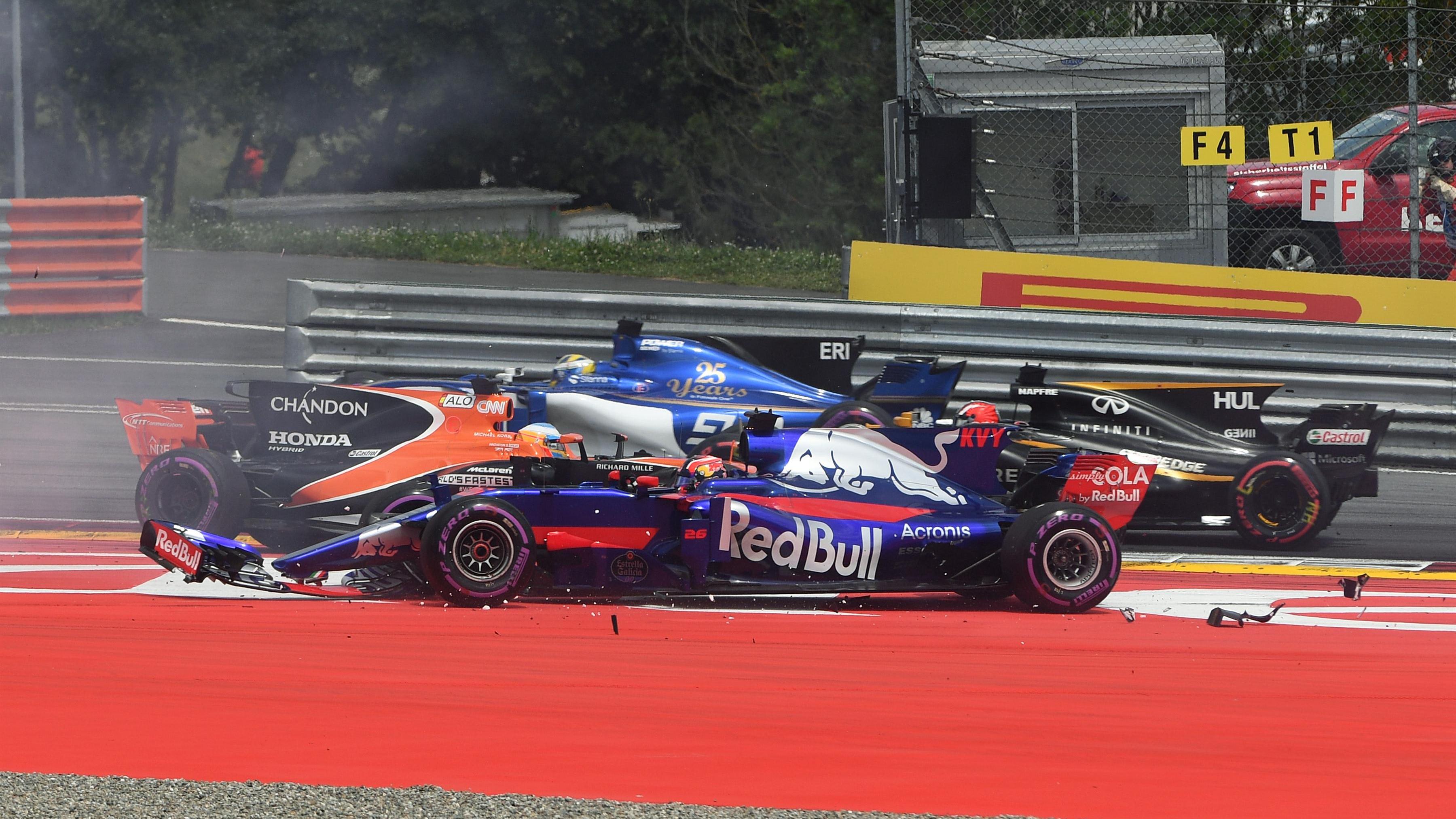

I raced Cadets in 1996, and we could see guys like Lewis being talked about as future F1 potential.
#F1 DRIVER SUPER LICENSE POINTS DRIVERS#
Yes, F1 has always been a rich man’s game, we all know this and it’s part of the colourful mixture of drivers you get, but there was a brief period of time when you didn’t need a net worth of small country to dream of ‘making it’. The beauty of motorsport is good drivers don’t have to win to be noticed. Right now the FIA seems intent on forcing people to race cars for longer periods of time in classes where teams can monopolise performance. Lewis Hamilton, in my view, was right that when he suggested that F1 needs ‘working class’ heroes. This isn’t meritocratic, this is plutocratic. The new points system puts the power right into the hands of those who can keep on spending. F4 is already ludicrously expensive anyway, but now a driver has to win straight away to stand any chance, and if you can’t afford a good team, you’re finished. They may have only 24 months to do car racing and then they are out of money. Some drivers have extremely limited budget and time. Who is benefiting from this? Certainly the junior teams will be pleased that young drivers will have to continually spend vast amounts of money until the acquire all the points they need.Īnd this is the crux of the issue. So here we have a talented young driver who can’t even gain experience and had to be replaced by Jake Dennis, who is also very talented, but who doesn’t appear to be on RBR’s radar for a Toro Rosso drive. We have seen already how Dan Ticktum hasn’t been able to test a RedBull at the FIA Young Driver’s Test in Hungary. It’s so bizarre that the FIA is saying that winning a championship is reflective of driver competence when F1 is built upon a structure which means a driver like Alonso can finish 15th in a race and still be considered one of the best on the grid. Winning F2 costs in the region of £2,000,000 so we can deduce a rough value per point from that. In addition to that how is the FIA going to make top-level karting less expensive by giving the winner of the World Championship 4 valuable Super Licence Points when the monetary value has to be over £200,000. If you are a competitive F2 team, then really you can charge whatever you want to a driver because if you can monopolise a championship (which teams often can for years on end in single-make championships) then what else can they do other than pay? The inherent problem here is that in a sport where absolute result isn’t always reflective of performance, by inflating the value of championship positions to be absolutely necessary there is a risk of pricing most people out of the market (if they haven’t been already). But you now have to be 18 before you can race F1 and people prefer to get into cars as early as possible as that’s where the big points are. Though technically it is still possible if you can win 3 World Karting Championships and then win Euro F3. This is a reaction to drivers like Max Verstappen doing 1 year in cars from karting and jumping straight into F1.

If they win F2 they get 40 points, 30 for winning F3 and so on. The FIA states that a driver needs to achieve at least 40 points accrued in the junior (or other) categories before they can apply for an F1 Super Licence.

In the end I believe the new points system has the potential to harm drivers and artificially inflate the cost of going racing in the junior formulas. On the face of it trying to introduce a meritocratic element to F1 is a noble idea, but in the face of Lawrence Stroll purchasing an F1 team for his son to race in, surely that ridicules the notion that F1 can be truly meritocratic.
#F1 DRIVER SUPER LICENSE POINTS SERIES#
I don’t recall anybody being sacked.Īnd now we have the new Super Licence points system designed to limit those who can enter F1 by placing qualifying criteria on pure race results, with various series being allocated varying distributions of said points. The accompanying ‘10 Keys Points to KF’ document would in most other industries lead to a wave of redundancies for failure to meet pretty much any target. A prime example was the introduction of KF into karting in 2007 which was an unmitigated disaster. The FIA often makes odd decisions without proper analysis of economic consequences. The FIA, it appears to me, seem ignorant of this. Absolute result is not always reflective of actual performance or fundamental ability. “I know this kid is in 10th, but look at the sh*tbox he is dragging around”


 0 kommentar(er)
0 kommentar(er)
